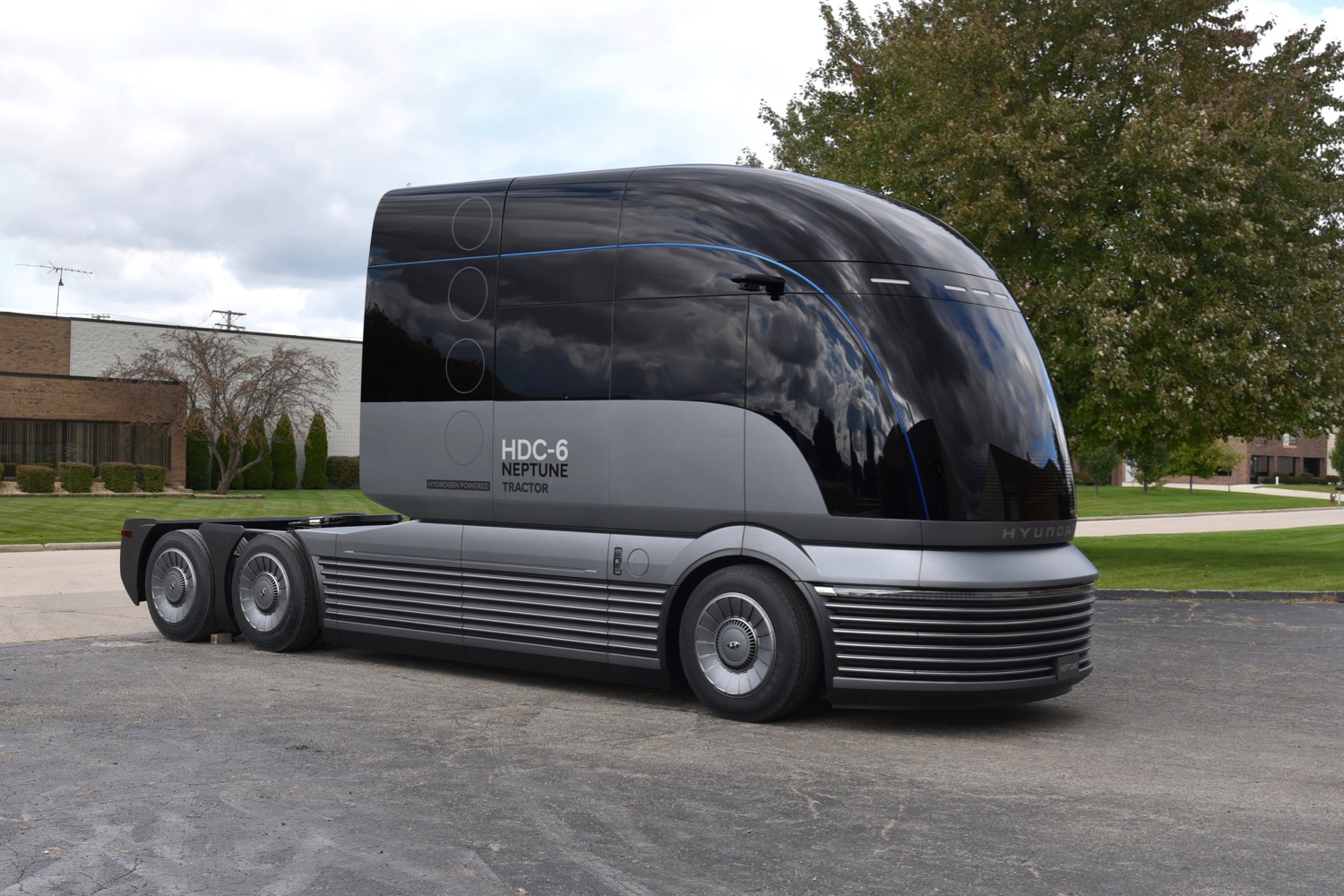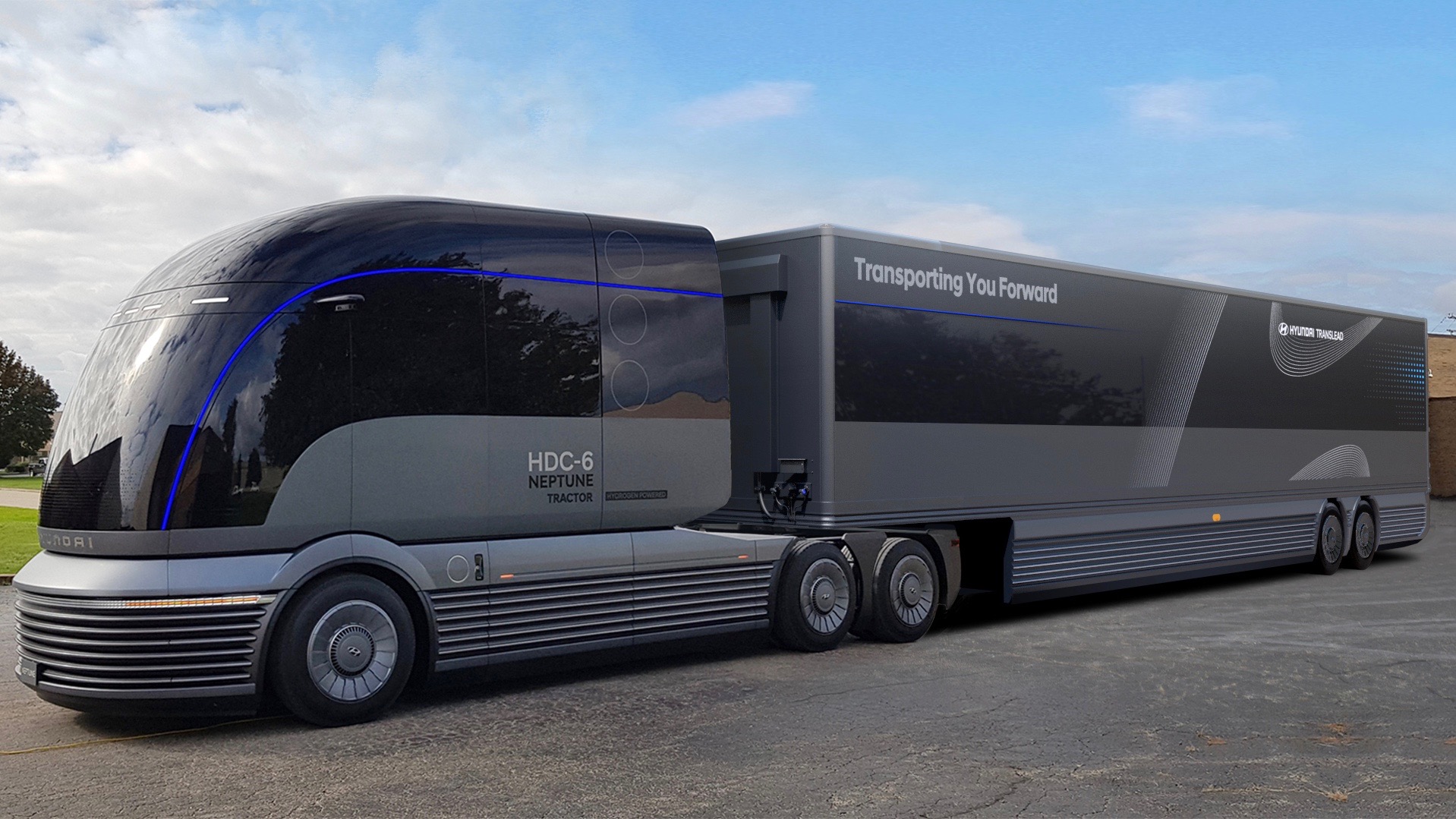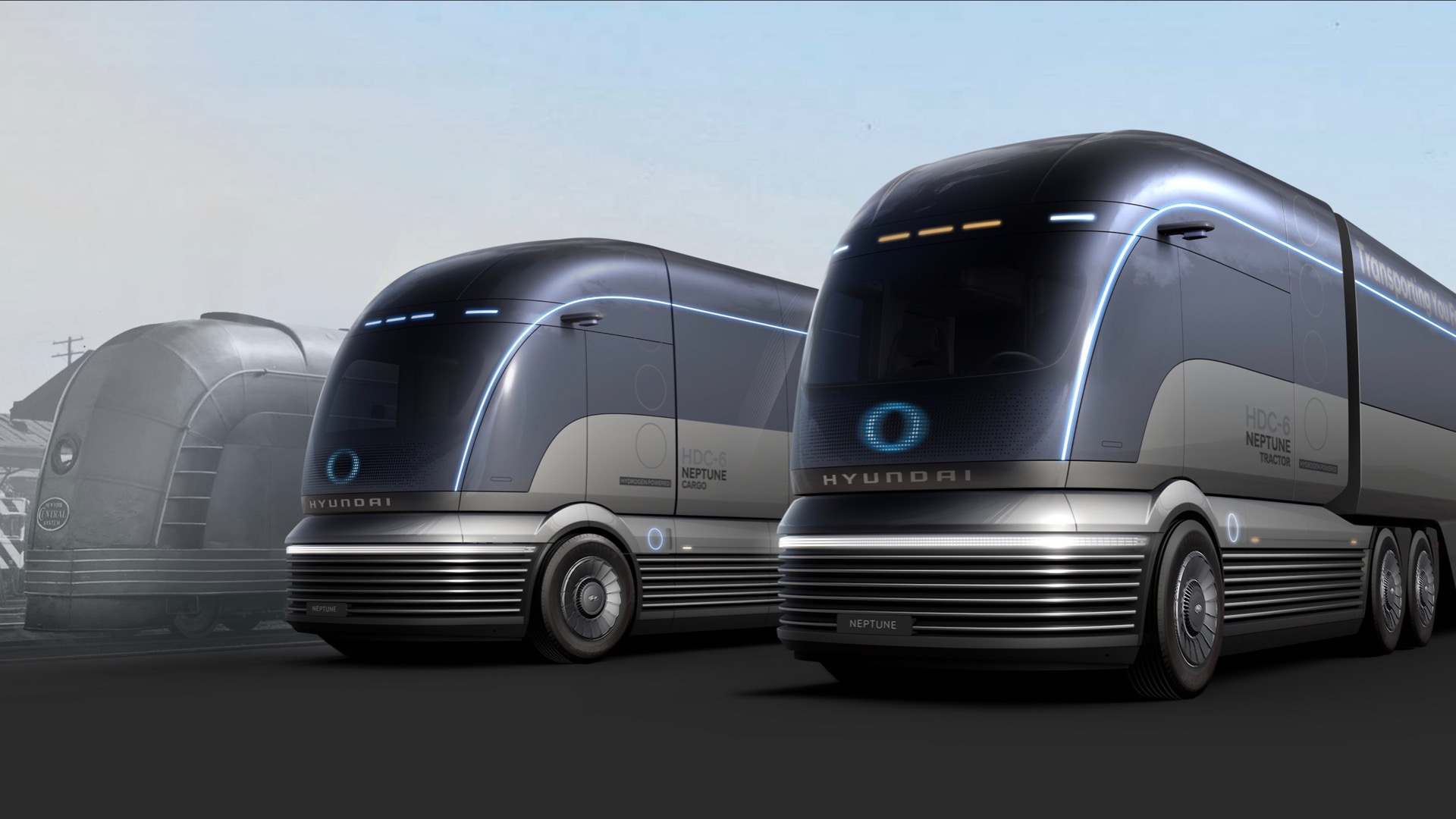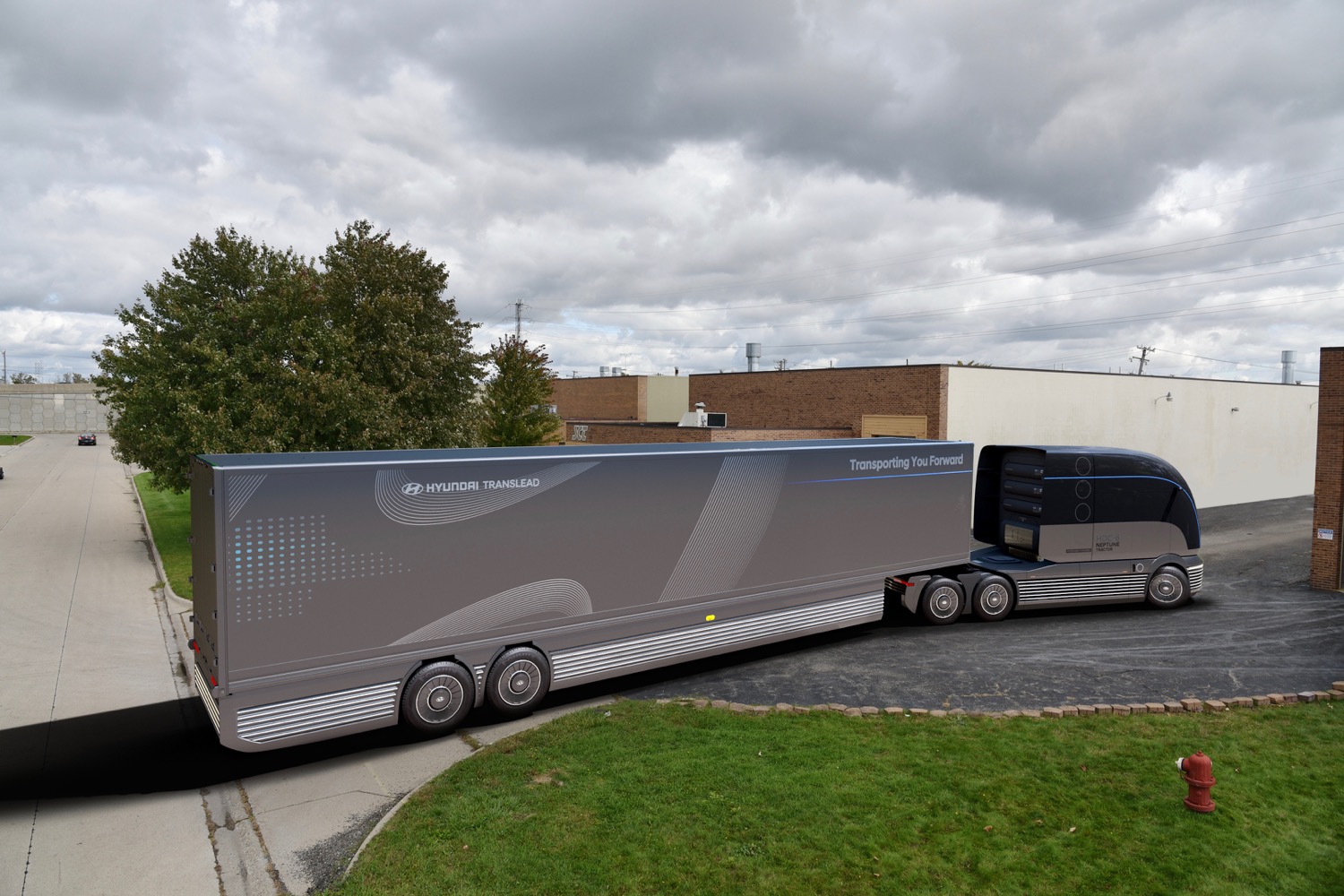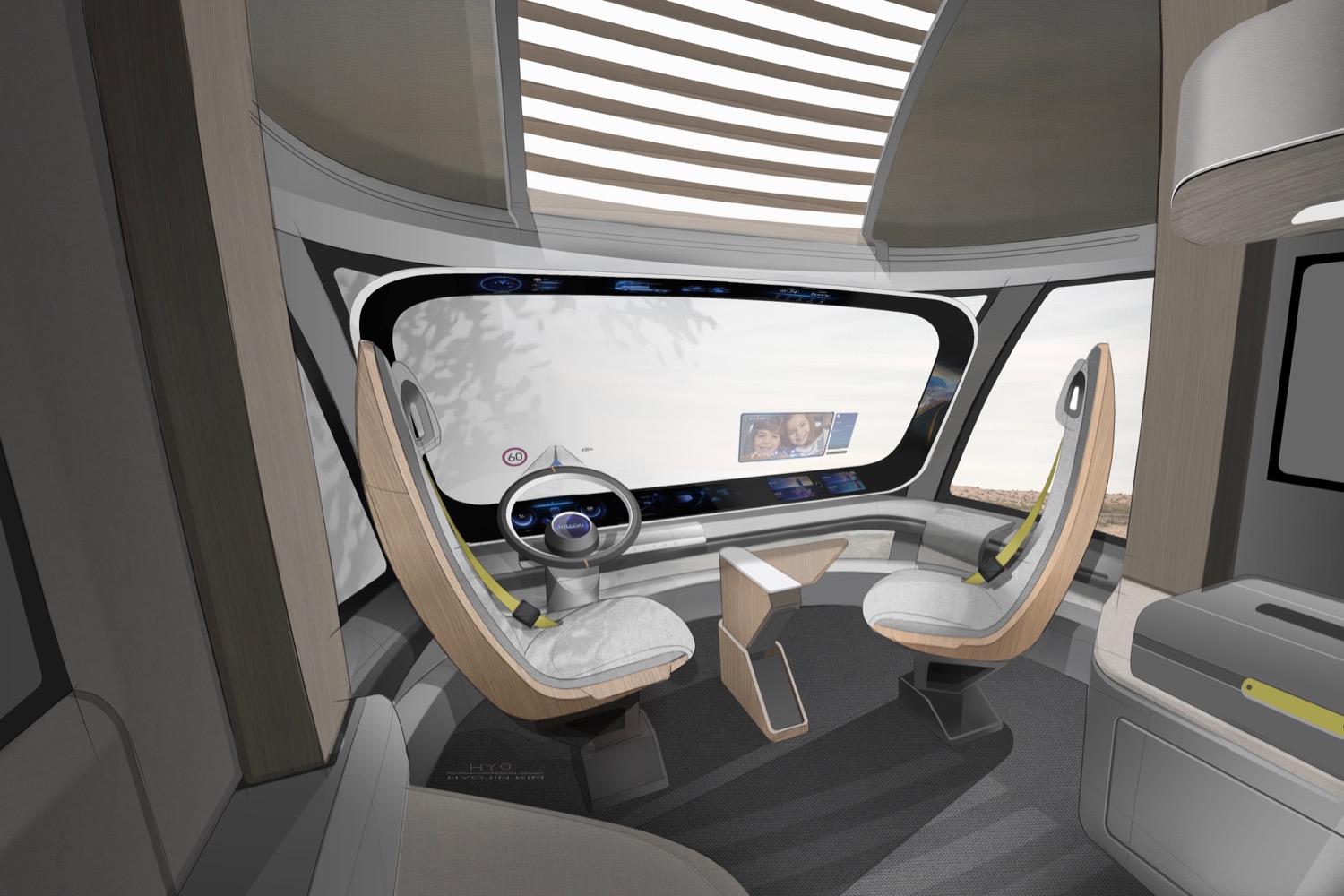It’s easy to look at the car in your driveway and worry about its carbon footprint, but what about the food in your refrigerator?
Most of the things we buy get where they’re going in commercial trucks, and those trucks create an outsize amount of carbon emissions. Hyundai believes the solution to that problem could be adapting the hydrogen fuel cell powertrain tech used in its Nexo crossover to power a big rig. The Hyundai HDC-6 Neptune concept shows what a future fuel cell truck could look like. Even its refrigerated trailer was designed to keep carbon emissions to a minimum.
Hyundai wrapped the hydrogen tech in a retro futuristic design. The inspiration came from streamlined trains, specifically those designed by Henry Dreyfuss for the New York Central Railroad in the 1930s, according to a Hyundai press release. Those evocative designs helped give railroads an added bit of glamour as they faced increasing competition from automobiles and air travel. Hyundai wanted to bring some of that same style to what is normally a utilitarian vehicle toiling in anonymity (at least until one cuts you off on the highway).
“The fuel cell powertrain gave us the opportunity to redefine the classical typology and architecture of the truck,” Luc Donckerwolke, chief design officer for Hyundai Motor Group, said in a statement. Donckerwolke, who worked at Lamborghini and Bentley before coming to Hyundai, and his team didn’t have to package a bulky diesel engine, allowing them to get creative. Hyundai claims the overall shape of the truck also offers better ergonomics than conventional designs.
The HDC-6 Neptune tractor doesn’t pull just any old trailer. The HT Nitro ThermoTech concept trailer is designed to keep its cargo cold more efficiently than conventional refrigerated trailers, according to Hyundai. Enhanced thermal efficiency allows the temperature to be more precisely controlled, and means the refrigerated space isn’t affected by outside temperatures, Hyundai claims. That’s partly down to walls constructed from foam sandwiched between fiber-reinforced polymer skins. The refrigeration unit also works when the truck is off, and is nearly silent, which is a major advantage for nighttime deliveries in urban areas, according to Hyundai.
Hyundai unveiled the HDC-6 Neptune at the North American Commercial Vehicle Show in Atlanta, rather than a location overseas, because it is considering entering the North American commercial vehicle market. Hyundai already sells commercial trucks in other markets, and plans to deploy 1,600 fuel cell trucks in Switzerland (using a more conventional design) through 2023. While Hyundai called the United States an “important next phase” of its fuel cell plans, the company did not discuss specific plans to sell fuel cell trucks here. Hyundai currently sells its Nexo fuel cell crossover in California.
Hyundai isn’t the only company looking to build hydrogen commercial trucks alongside passenger cars. Toyota is currently testing prototype fuel cell trucks in California, although it hasn’t committed to a production run beyond the initial batch of 10 test vehicles. The trucks are modified Kenworth models, rather than clean sheet designs. Toyota is also working on fuel cell buses and recently unveiled a sleek redesign of its Mirai sedan.
All fuel cell vehicles face a limited supply of hydrogen and a lack of fueling stations. This may be less of a hurdle for commercial vehicles than it is for passenger cars, though. Many trucks operate on set routes between designated terminals, so they don’t need an extensive network of stations. Long-haul trucks stray further from those terminals, and could be a tough nut to crack for hydrogen proponents like Hyundai and Toyota.
Editors' Recommendations
- Hyundai bets big on hydrogen from sewage, plastic
- Scientists discover how to turn toxic sewer gas into hydrogen fuel
- Hyundai cracks off two new land speed records in fuel cell, hybrid cars
- Toyota’s E-volution continues with 2021 Mirai and 2021 RAV4 Plugin
- Next-gen Toyota Mirai confirmed despite continuing issues with hydrogen tech
